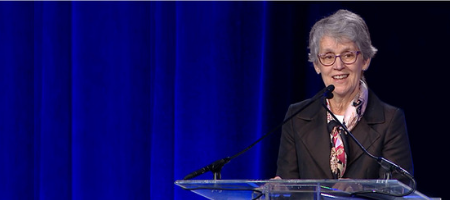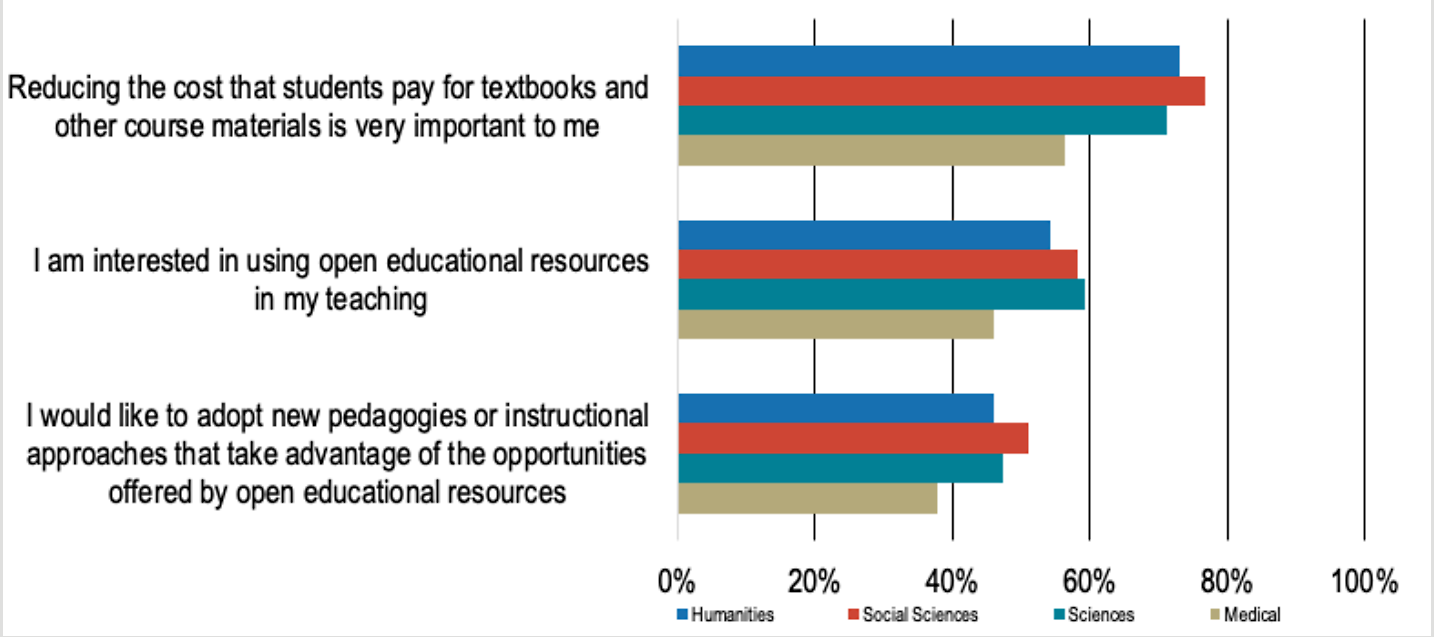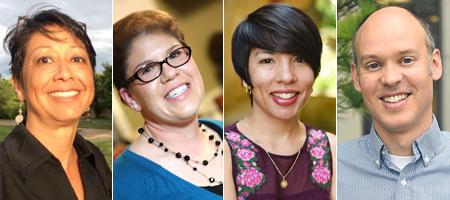And yet, it’s important to remember that we can find strength in supporting each other in our shared goals to improve higher education. In this newsletter, we focus on ways we can bridge gulfs–whether through data communities that foster collaboration across disciplines, a partnership between a research university and a tribal college to uncover the needs of Indigenous Studies scholars, or a workshop that recognizes that department chairs across higher ed face similar challenges.
As always, I hope that you’ll take time to share your thoughts and feedback with me.
Sincerely,

Catharine Bond Hill
Managing Director, Ithaka S+R

An economist’s case for investing in higher education
Evaluating the quality and value of higher education isn’t as simple as assessing a good cup of coffee. But in abstract market terms, how should we gauge the continuing social and personal benefits of ensuring equitable access to higher education? In this transcript of Catherine Bond Hill’s Robert H. Atwell Plenary Address at ACE 2019 in Philadelphia, she makes the case for why education remains America’s most effective engine for increasing social equality.

Are data communities the future of science?
There’s a growing perception that science can progress more quickly, more innovatively, and more rigorously when researchers share data with one another. Yet too frequently, this collaborative, wide-scale data sharing is simply not happening. But there are exceptions, and our issue brief looks at how “data communities” grow when stakeholders recognize researchers’ needs and support their practices. Funders, universities, professional societies, and libraries can learn from these success stories and provide the infrastructure to help emergent data communities thrive.
 Percent of respondents who strongly agreed/agreed with each statement
Percent of respondents who strongly agreed/agreed with each statement
What did we learn from our latest survey of US faculty members?
- Faculty are increasingly interested in open access, but this is not a major consideration when they make decisions about where to publish their research
- Faculty want to incorporate open educational resources into their teaching
- Faculty are skeptical about the value of using learning analytics tools
These are just some of the findings from our comprehensive survey of the research, teaching, and publishing practices of faculty at four year institutions. The full report offers insight into how colleges and universities, foundations, libraries, scholarly societies, and publishers can refine their strategies to better meet faculty needs.

Leadership workshop for department chairs: apply today!
Department chairs increasingly play a crucial role in innovations around teaching, learning, and technology. Yet, while the department chair is typically the first rung on the ladder to senior leadership in academia, many take on the position without the necessary training or mentorship.
The Chronicle of Higher Education and Ithaka S+R have teamed up to provide a workshop that helps department chairs meet the challenges of their role, whether managing faculty, allocating scarce resources effectively, or introducing innovations to further student learning.
We are currently accepting applications for the next workshop, to be held in Washington DC on August 12-13.

Three questions for Carrie Cornelius, Sara Morris, Rebecca Orozco, and Michael Peper
These librarians–three from the University of Kansas and one from Haskell Indian Nations University–participated in the Research Support Services project on Indigenous Studies. In this interview, they describe the collaboration between the two universities, what they learned through their research, and how they are incorporating their findings into their work.
Why did you want to participate in this study?
Carrie Corneilus: I am a tribal librarian of students and faculty from 140 North American tribes; the impact of the Ithaka S+R project is high. Participating was my responsibility as a tribal librarian. Our patrons are each personally affected by research about their families and their communities, perhaps more negatively than positively.
Sara Morris: This presented an opportunity to expand my research skills and learn something new. Professionally, since I work in collection development, learning more about scholars at both the University of Kansas and Haskell Indian Nations University, would improve my ability to do my job.
Rebecca Orozco: First, as a Woman of Color, I believe that it is important to have as many voices and experiences as possible represented in the scholarly record. Second, like my colleagues, I saw this as an opportunity to learn more about how Indigenous Studies faculty at both institutions conduct research and teach in order to partner with them more effectively.
Michael Peper: I was new to KU when this project was proposed, and I saw it as a good opportunity to get to know faculty working in this field and to colleagues at KU and Haskell that I did not know well. It was an area of research I knew little about, so it also seemed like an opportunity where I could learn a lot.
Continue reading the rest of the interview on our blog
In the News
May 30, 2019
Are ‘Big Deals’ Actually Good Deals?
Lindsay McKenzie, Inside Higher Ed
May 21, 2019
Exhibiting Change: When Some of the Best-Attended Exhibitions in Museums Are Protests, Where Do Institutions Go from Here?
Barbara Pollack, ARTNEWS
May 8, 2019
How Can Higher Ed Bring Transparency to the Alternative Credential Marketplace?
Natalie Schwartz, Education Dive
April 29, 2019
The Publishers’ Move to Capture Campus Data
Doug Lederman, Inside Higher Ed
April 23, 2019
A Wake-Up Call to Help Student Loan Borrowers
Catharine Hill and Will Sealy, Inside Higher Ed
April 16, 2019
The B.A. Breakthrough: How Foundations Support Equity
The 74
April 12, 2019
Survey Explores Faculty Behaviors, Perceptions in Teaching, Research and Publishing Practices
Tiffany Pennamon, Diverse Issues in Higher Education
March 26, 2019
As Elsevier Falters, Wiley Succeeds in Open-Access Deal Making
Diana Kwon, The Scientist